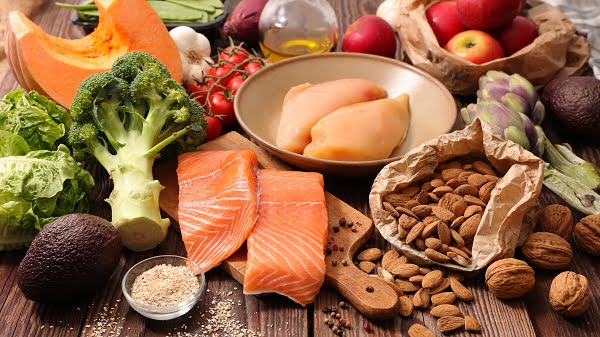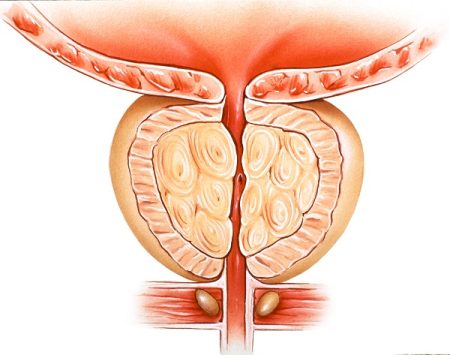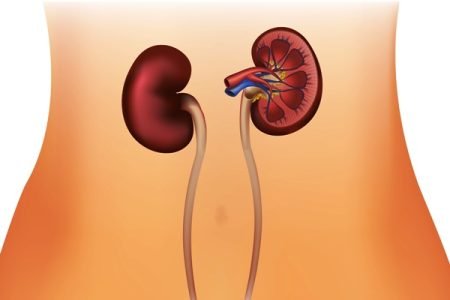Enlarged Prostate Diet: What to Eat if You Have Enlarged Prostate?
- Updated on: Jun 29, 2024
- 3 min Read
- Published on Apr 19, 2021

A man’s prostate gland generally starts to enlarge after he reaches about 40 years old. This condition is called enlarged prostate or prostate enlargement or benign prostatic hyperplasia (BPH). This is considered a natural process of aging.
Our prostate gland is normally about the size of a walnut and wraps around the urethra. Due to prostate enlargement, the bladder muscle becomes thicker and forces the urine through a narrowed urethra.
As the prostate grows larger, this squeezes the urethra more tightly. The bladder might not be able to fully compensate for the problem and become empty completely. Blockage may also result from prostate enlargement, in some cases. This may cause problems such as repeated urinary tract infections, bladder stones, bladder or kidney damage, etc.
According to a study by Mayo Clinic, about 50 percent of men over the age of 60 have an enlarged prostate or benign prostatic hyperplasia (BPH). By the age of 85, more than 95 percent of men are with BPH.
Can diet help with enlarged prostate symptoms?
There is good news for those living with an enlarged prostate or who are at risk of developing the disease. A diet rich in vitamins and minerals can keep your prostate healthy and lower your risk for BPH. Being obese is another risk factor for developing the condition. So having nutritious food is also a good way to lower both your weight and your risk.
Foods to eat if you have an enlarged prostate
Here are some foods that can help decrease the risk of BPH and also relieve enlarged prostate symptoms, according to recommendations from certain studies.
- A low-fat diet
- At least four servings of vegetables a day
- A high level of physical activity
- Having no belly fat
- Use of vitamin C: Vitamin C is an antioxidant that may help in fighting BPH. Not all vitamin C is the same. Only vitamin C obtained from vegetables lowers your risk of an enlarged prostate. Fruits don’t provide the same benefits. Foods containing vitamins C and helpful in BPH are such as bell peppers, broccoli, sprouts, kohlrabi, cauliflower, kale, snow or snap peas, and tomato or vegetable juices
- Zinc in diet: oysters, crab, duck, lamb, lean beef, and baked beans
- There’s little evidence that supplements can be useful in BPH
- The evidence for proteins to be helpful in BPH is unclear
- Sesame seeds: Sesame seeds are rich in zinc. Zinc is essential to the health of the prostate, according to a study published in the Indian Journal of Urology.
- Salmon: evidence suggests that increasing omega-3s along with exercise helps in decreasing obesity and weight gain, which reduces the risk of developing BPH
Healthy habits such as exercising daily, maintaining your waistline, eating vegetables, and limiting dietary fat may help with BPH.
FAQs
Can diet alone treat an enlarged prostate?
While diet is crucial, it's not a standalone treatment. A prostate-friendly diet, rich in fruits, vegetables, and lean proteins, complements medical interventions and helps manage symptoms.
Is caffeine consumption linked to prostate enlargement?
Excessive caffeine intake may exacerbate prostate symptoms. Consider reducing caffeine from sources like coffee and tea, as it can irritate the bladder and worsen urinary symptoms associated with an enlarged prostate.
Are there specific foods to avoid for an enlarged prostate?
Certain foods like spicy dishes and acidic foods can irritate the prostate. Limiting these, along with reducing red meat and dairy consumption, may help alleviate symptoms.
Can herbal supplements help with an enlarged prostate?
Some herbal supplements, such as saw palmetto and pygeum, have shown promise in managing prostate symptoms. Consult with a healthcare professional before adding supplements to your routine.
How quickly can dietary changes impact prostate health?
Results vary, but consistent adherence to a prostate-friendly diet may lead to noticeable improvements in symptoms within a few weeks to months. Patience and ongoing healthy choices are key.











